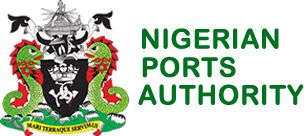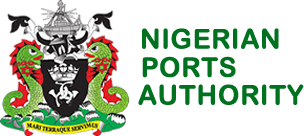Pilotage Operations
- Ship agent apply to the Port Manager for approval to berth vessel
- Vessel approved to berth by the Port Manager through the Harbour Master.
- Pilot is rostered to the vessel for Pilotage duties.
- Pilot establishes contact with vessel, proceeds to sea, boards the vessel and manoeuvres her safely to berth.
Documentation
- Provisional bill raised
- Receipt of Payment
- Master Declaration
- Pilotage Chit
Timeline
Duration is subject to length of pilotage/channel, tidal phenomena and weather conditions
Associated Charges
Pilotage is a component of Ship Dues ($1.28)
Pilotage
In & Out: $0.112/GRT
Pilotage Exemption
- The representative of the Shipping Company applies to the Chairman Pilotage Board (Habour Master of the Pilotage District) on behalf of the Master of the vessel.
- A Debit Note is raised by the Commercial department of the port of operation.
- On receipt of payment, a date is set aside for the interview.
- The Master will be interviewed by the Pilotage Board.
- Successful applicants will then be issued a Pilotage Exemption Certificate in the name of the vessel which was applied for.
- The Pilotage Exemption Certificate is valid for one (1) year and neither transferrable to another person nor used for another vessel.
Documentation
- Form Q88 (Ship particulars)
- Medical certificate of fitness
- Evidence of payment
- Evidence of continuous operation within the channel for a minimum of ten (10) moves
Timeline
One (1) Week
Associated Charges
₦40,000/Pilot/Vessel/District
Towage Operations
- The Harbour Master’s office allocate tugboats to Pilot
- The number of tugboats required for towage operation depends on the ship’s characteristics and Master special request.
Documentation
- Provisional bill raised
- Receipt of Payment
- Master Declaration
- Pilotage Chit
Timeline
Duration is subject to length of pilotage/channel, tidal phenomena and weather conditions
Associated Charges
$2000/Tug/Move for LOA < 200 $2500/Tug/Move for LOA > 200
Berthing/Mooring of Vessels
- Vessels declared at the berthing meeting by the Shipping Company or Agent.
- Terminal operator stem vessel to berth at the berthing meeting.
- Shipping Company or Agent seeks approval to berth vessel from the Port Manager.
- The shipping agent makes a booking for the vessel’s movement from sea to the berth.
- Vessel reports her arrival to the Port Control/Signal Station via VHF Radio.
Documentation
Approved application to berth the vessel by the Port Manager through the Harbour Master containing a copy of;
- Ship Manifest
- Ship Entry Notice (SEN)
- Provisional bill raised
- Receipt of Payment
Timeline
Berthing meeting is daily (Weekdays only).
Duration 1 hour.
Port Manager’s approval to berth within 10mins of receipt of request.
Booking for vessel movement – 5mins
Associated Charges
Berthing/Mooring
In: $125
Sailing/Unmooring Operations
- Application to the Port Manager for Sailing attaching Provisional Bill, Payment receipt and NIMASA clearance attached.
- Traffic Manager confirms the Tonnage and Clean Operation
- Port Manager Approves the Certificate to the Harbour Master for Sailing
- Harbour Master roaster Pilot to sail the vessel
- Pilot goes on-board with Master Declaration and Pilotage Chit for endorsement by the Master of the vessel
- Pilot calls for mooring men and tug assistance to sail out the vessel.
Documentation
- Ship Sailing Clearance Certificate
- Provisional bill raised
- Receipt of Payment
- Master Declaration
- Pilotage Chit
- NIMASA Clearance
Timeline
Documentation – 1 Hour
Unmooring operations depend on the length of the vessel – 20 mins
Pilotage is subject to length of pilotage/channel, tidal phenomena and weather conditions
Associated Charges
Sailing/Unmooring
Out: $125
Radio/Signal Communication & Control
Captain of Vessel or delegate puts call to Port Control via Radio (VHF Channel 12 or 16) to convey;
- Arrival Particulars
- SOLAS – emergency information (in case of an emergency) under GMDSS
- Information on Security and Safety requirements of the Crew and Vessel
- Vessel departure information and documentation
Port Control relays the following to the Vessel;
- IMO Safety information on Navigational safety, traffic information and Notices to Mariners/local regulations
Channel monitoring and Traffic control – Radio Control monitors ship movement and shifting of vessel to ensure safety of pilotage operations of other vessels and crafts within the channel.
Documentation
- Ship Entry Notice (SEN) Number
- Rotation Number of Vessel
- Berthing/Sailing Clearance (berthing clearance on arrival of vessel and sailing clearance at departure)
- Ship Movement Schedule
Timeline
Radio contact
Service Boat Operations
- NPA appoints Managing Agents to monitor Service Boat Pilotage Movements
- NPA register Service Boat Agent appointed by any Service Boat Operator
- Managing Agent (INTELS) Collects Master Declaration from NPA Harbours to capture all the movements
- Managing Agent (INTELS) submits Master Declaration and Pilotage Chit to Tariff & Billing Department (through Harbours Dept.)
- Tariff & Billing Department raises Compulsory Pilotage Bills in the name of the appointed Service Boat Agent or INTELS (whoever is appointed as Agent)
- Compulsory Pilotage Bills raised are delivered through the Managing Agent (INTELS) to the Service Boat Agents for payment within Five (5) working days from the date of receiving the bill.
- Managing Agent (INTELS) collects and acknowledges registered copies of fully approved invoices from Tariff & Billing Department for delivery to the Service Boat Agents.
Documentation
- Master Declaration
- Pilotage Chit
- Service Boat Manifest
- Compulsory Pilotage Bills
Timeline
72 Hours
Associated Charges
- Compulsory Pilotage Rates (NPA Charges Notice 001/004 of 2014) For Service Boats, Rigs, Tugs and Work Barges all of 10 GRT and above (as contained in NPA Tariff).
- Registration of Service Boat Agent N100, 000 Annually
- Renewal of Registration as Service Boat Agent N100, 000 Annually




